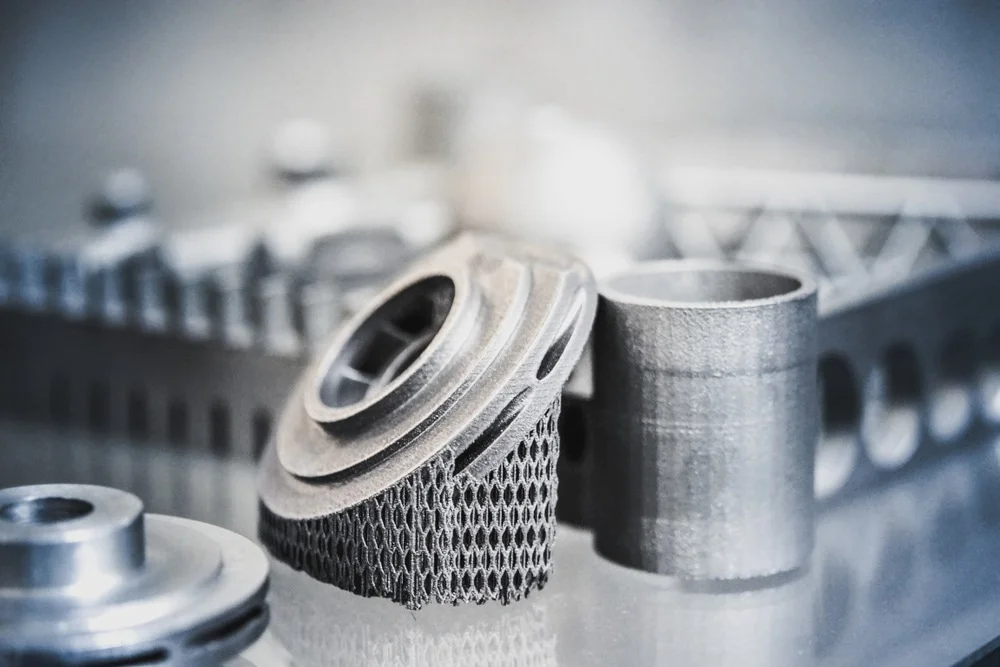ISO 11357-4 Heat Capacity Testing at Elevated Temperatures
The ISO 11357-4 heat capacity testing method is a critical tool in materials science and engineering, especially for high-temperature materials used in sectors like aerospace, automotive, and power generation. This standard specifies the procedure for determining the heat capacity of materials over a wide range of temperatures up to their melting point. This information is essential for understanding how materials behave under extreme conditions, which can significantly impact product design and performance.
The test involves measuring the amount of heat required to raise the temperature of a sample by one degree Celsius at specified intervals across a defined temperature range. The accuracy of this measurement is crucial for ensuring that materials meet quality standards and perform reliably in demanding environments. This service supports compliance with international standards like ISO 11357-4, ASTM E268, and EN 900.
The apparatus used in this testing includes a calorimeter designed to maintain precise temperature control over the sample. The specimen is typically heated or cooled at a controlled rate while the heat flow is measured accurately using high-precision sensors. This setup allows for detailed analysis of how different materials respond to changes in temperature, providing insights into their thermal stability and energy storage capabilities.
A key aspect of this testing involves preparing specimens according to specific dimensions outlined in ISO 11357-4. The samples must be representative of the material they are intended to test, ensuring accurate results that reflect real-world performance conditions. Once prepared, these samples undergo rigorous calibration checks before being subjected to temperature cycling within the calorimeter.
The methodology employed ensures repeatability and reproducibility by adhering strictly to the protocols specified in ISO 11357-4. This includes using standardized heating methods and maintaining consistent environmental conditions throughout testing. By following these stringent procedures, we can provide reliable data that helps engineers make informed decisions about material selection.
Understanding heat capacity at elevated temperatures is vital for developing new materials capable of withstanding harsh operating environments. For instance, aerospace manufacturers rely on this information when selecting alloys for turbine blades or engine components exposed to extreme heat during flight. Similarly, power plant operators need accurate knowledge of fuel rod materials' thermal properties to optimize efficiency and safety.
Our expertise in ISO 11357-4 heat capacity testing ensures compliance with industry best practices while delivering actionable insights that drive innovation forward. Whether you're an R&D engineer looking for cutting-edge solutions or a quality manager ensuring product reliability, our services offer unparalleled precision and accuracy.
Scope and Methodology
The scope of ISO 11357-4 heat capacity testing encompasses the determination of the specific heat capacity (Cₚ) of solid materials over a broad temperature range. This service is particularly valuable for high-temperature applications where traditional low-temperature methods may not suffice due to changes in material properties at elevated temperatures.
The methodology outlined in ISO 11357-4 involves several key steps:
- Preparation of the specimen according to specified dimensions and tolerances
- Calibration of the calorimeter to ensure accurate temperature measurement
- Heating or cooling the sample at a controlled rate within the desired temperature range
- Recording heat flow data during each temperature interval
- Analysis of collected data using appropriate formulas provided in ISO 11357-4
The apparatus used for this testing includes advanced calorimeters capable of maintaining precise temperatures, ensuring accurate readings even at the highest operating points. The sample preparation process is critical to obtaining reliable results, as any deviation from standard procedures could lead to erroneous conclusions about material behavior.
By adhering strictly to ISO 11357-4 guidelines, we ensure that our tests are both repeatable and reproducible, providing consistent data across multiple trials. This approach enhances confidence in the test results, allowing stakeholders to trust the accuracy of their decision-making processes based on these findings.
Industry Applications
| Industry Sector | Specific Application |
|---|---|
| Aerospace | Determining thermal stability of engine components |
| Automotive | Evaluating fuel efficiency and emission control systems |
| Petrochemicals | Assessing pipeline integrity under extreme conditions |
| Power Generation | Optimizing boiler and turbine performance |
The application of ISO 11357-4 heat capacity testing extends beyond just these sectors, providing valuable insights into material behavior across various industries. For example, in the aerospace industry, understanding how materials respond to high temperatures is crucial for designing efficient and safe aircraft components.
Automobile manufacturers also benefit from this service by gaining deeper knowledge about fuel efficiency improvements and emission control strategies. In petrochemical plants, accurate heat capacity measurements help ensure pipeline integrity under severe operating conditions.
Power generation companies use these tests to optimize boiler and turbine performances, enhancing overall plant efficiency while reducing operational costs. By leveraging ISO 11357-4 heat capacity testing, organizations can stay ahead of regulatory requirements while improving product quality and reliability.
Environmental and Sustainability Contributions
- Reduces waste by optimizing material usage through precise thermal property knowledge
- Contributes to energy savings in manufacturing processes by selecting materials with optimal heat capacity properties
- Promotes recycling efforts by identifying suitable materials for reuse based on their thermal stability
- Supports sustainable design practices that incorporate longevity and efficiency into product development
The environmental impact of ISO 11357-4 heat capacity testing lies in its contribution to more sustainable manufacturing processes. By enabling better material selection, this service helps reduce waste and energy consumption throughout the lifecycle of products.
For instance, knowing a material's exact heat capacity allows manufacturers to use precisely the right amount of raw materials during production, minimizing unnecessary inputs and reducing associated environmental footprints. Additionally, selecting materials with optimal thermal properties can lead to more efficient manufacturing processes, further contributing to energy savings.
Incorporating longevity and efficiency into product design through this testing supports broader sustainability goals by promoting responsible resource use and waste reduction. This aligns closely with global efforts towards greener technologies and practices.





